10 Best Herbal Tinctures For Bronchitis

Herbal tinctures for bronchitis are concentrated liquid extracts made from various medicinal plants known for their anti-inflammatory and expectorant properties.
Common herbs used in these tinctures include eucalyptus, thyme, sage, and ginger, which are traditionally believed to help alleviate symptoms such as coughing, congestion, and inflammation in the respiratory tract. These tinctures are often prepared by soaking the dried herbs in alcohol or glycerin, allowing the active compounds to be extracted for easier absorption by the body. While they may provide relief for mild bronchitis, they should not replace medical treatment for more severe or chronic cases.
It is important to consult a healthcare professional before using herbal tinctures, especially if you have underlying health conditions or are taking other medications.
Table of Contents
- 1. Thyme (Thymus vulgaris)
- 2. Ginger (Zingiber officinale)
- 3. Eucalyptus (Eucalyptus globulus)
- 4. Peppermint (Mentha piperita)
- 5. Rosemary (Rosmarinus officinalis)
- 6. Scots pine (Pinus sylvestris)
- 7. Licorice (Glycyrrhiza glabra)
- 8. Plantain (Plantago lanceolata)
- 9. Chamomile (Matricaria chamomilla)
- 10. Black elderberry (Sambucus nigra)
1. Thyme (Thymus vulgaris)

Thymus vulgaris, commonly known as thyme, is a popular herb used in the preparation of tinctures for respiratory conditions such as bronchitis.
These tinctures are valued for their antimicrobial, anti-inflammatory, and expectorant properties, which help to soothe irritated airways and reduce mucus buildup. Thyme contains active compounds like thymol and carvacrol, which contribute to its therapeutic effects by combating bacterial and viral infections. When used as a tincture, thymus vulgaris is often diluted in alcohol and taken orally to support respiratory health and alleviate symptoms of bronchitis.
However, it is important to consult a healthcare professional before use, especially for individuals with existing medical conditions or those taking other medications.
2. Ginger (Zingiber officinale)

Zingiber officinale, commonly known as ginger, has been traditionally used for its medicinal properties, and its herbal tinctures are increasingly being explored for their potential benefits in treating bronchitis.
These tinctures are prepared by soaking fresh or dried ginger in alcohol, allowing the active compounds such as gingerol and shogaol to be extracted for therapeutic use. The anti-inflammatory and bronchodilatory effects of ginger may help alleviate symptoms like coughing, mucus production, and airway constriction associated with bronchitis. However, while some studies suggest possible respiratory benefits, more rigorous clinical research is needed to confirm its efficacy and safety for this specific condition.
As with any herbal remedy, it is advisable to consult a healthcare professional before using ginger tinctures, especially for individuals with existing health conditions or those taking other medications.
3. Eucalyptus (Eucalyptus globulus)
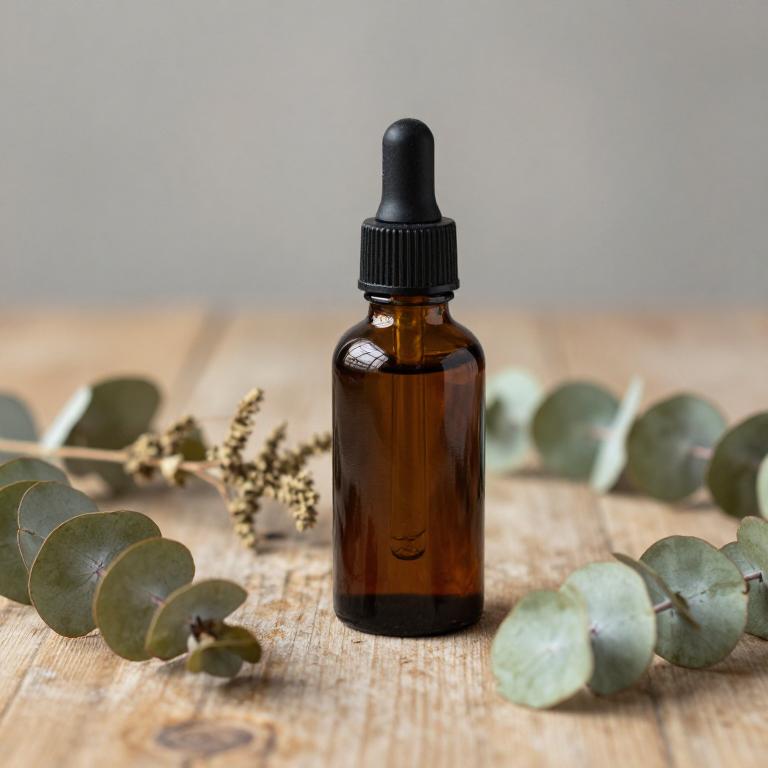
Eucalyptus globulus, commonly known as Australian tea tree, is often used in herbal tinctures to support respiratory health, particularly for conditions like bronchitis.
These tinctures typically contain extracts from the leaves of the eucalyptus plant, which are rich in compounds such as eucalyptol, known for their antimicrobial and anti-inflammatory properties. When used as a bronchial remedy, eucalyptus globulus tinctures may help to ease congestion, reduce mucus production, and soothe irritated airways. They are often taken in small doses, diluted in water or combined with other herbal remedies, to avoid potential side effects.
While not a substitute for medical treatment, these tinctures may offer natural relief for mild bronchitis symptoms when used under the guidance of a healthcare professional.
4. Peppermint (Mentha piperita)

Mentha piperita, commonly known as peppermint, is often used in herbal tinctures to support respiratory health, including the treatment of bronchitis.
These tinctures harness the potent essential oils found in peppermint leaves, such as menthol and menthone, which have expectorant and decongestant properties. Peppermint tinctures may help alleviate symptoms like coughing, chest congestion, and difficulty breathing by soothing the airways and reducing inflammation. They are typically taken in small doses, diluted with water or another carrier liquid, to avoid irritation.
While peppermint tinctures can be a natural complement to conventional bronchitis treatments, they should not replace medical advice, and individuals with certain health conditions should consult a healthcare provider before use.
5. Rosemary (Rosmarinus officinalis)

Rosmarinus officinalis, commonly known as rosemary, is often used in herbal tinctures to support respiratory health, particularly in cases of bronchitis.
These tinctures typically contain concentrated extracts of rosemary leaves, which are rich in antioxidants and anti-inflammatory compounds. The essential oils in rosemary, such as camphor and pinene, may help to soothe irritated airways and reduce mucus production. While not a substitute for medical treatment, rosemary tinctures are sometimes used as a complementary therapy to alleviate symptoms of bronchitis.
However, it is important to consult with a healthcare professional before using any herbal remedy, especially for chronic or severe respiratory conditions.
6. Scots pine (Pinus sylvestris)
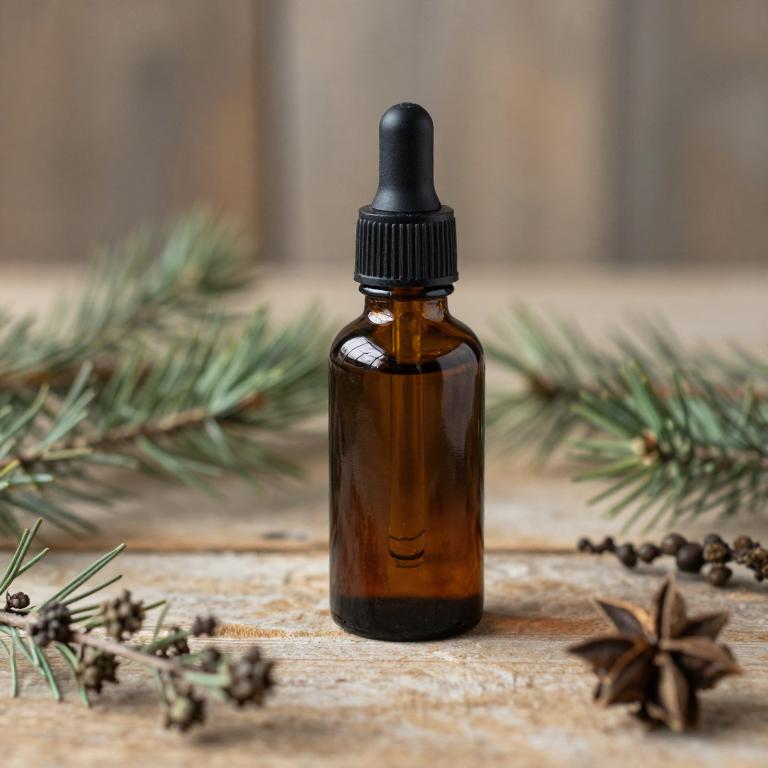
Pinus sylvestris, commonly known as Scots pine, has been traditionally used in herbal medicine for its potential respiratory benefits, including the treatment of bronchitis.
The essential oils and extracts from the needles of this conifer are often used to make tinctures that may help soothe inflammation and reduce mucus production in the airways. These tinctures are believed to have antimicrobial and anti-inflammatory properties that support respiratory health. When used as part of a holistic approach, Pinus sylvestris tinctures may help alleviate symptoms such as coughing and congestion associated with bronchitis.
However, it is important to consult with a healthcare professional before using these tinctures, especially for individuals with pre-existing medical conditions or those taking other medications.
7. Licorice (Glycyrrhiza glabra)

Glycyrrhiza glabra, commonly known as licorice root, is a widely used herb in traditional medicine for its potential therapeutic effects on respiratory conditions such as bronchitis.
Glycyrrhiza glabra herbal tinctures are prepared by extracting the active compounds from the root using alcohol, making them convenient for internal use. These tinctures are valued for their anti-inflammatory, antiviral, and expectorant properties, which can help alleviate symptoms like coughing, mucus buildup, and airway irritation. The primary active constituent, glycyrrhizin, is believed to support immune function and reduce inflammation in the respiratory tract.
However, long-term use of licorice tinctures should be approached with caution due to potential side effects such as hypertension and electrolyte imbalances.
8. Plantain (Plantago lanceolata)
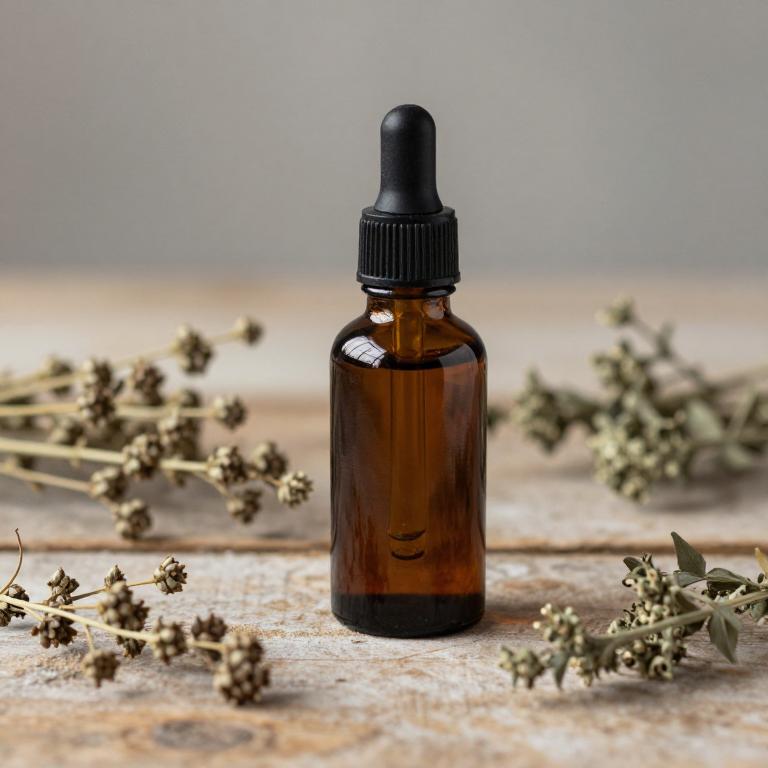
Plantago lanceolata, commonly known as plantain, has been traditionally used for its anti-inflammatory and expectorant properties, making it a popular herb in herbal tinctures for bronchitis.
When prepared as a tincture, Plantago lanceolata is often combined with other respiratory-supporting herbs like thyme and eucalyptus to enhance its effectiveness. The active compounds in plantain, such as mucilage and flavonoids, help soothe irritated airways and reduce mucus buildup, providing relief from bronchial inflammation. Herbal tinctures made from Plantago lanceolata are typically taken orally, either diluted in water or mixed with honey, to support respiratory health.
While generally considered safe, it is advisable to consult a healthcare professional before using plantain tinctures, especially for individuals with chronic respiratory conditions or those taking other medications.
9. Chamomile (Matricaria chamomilla)
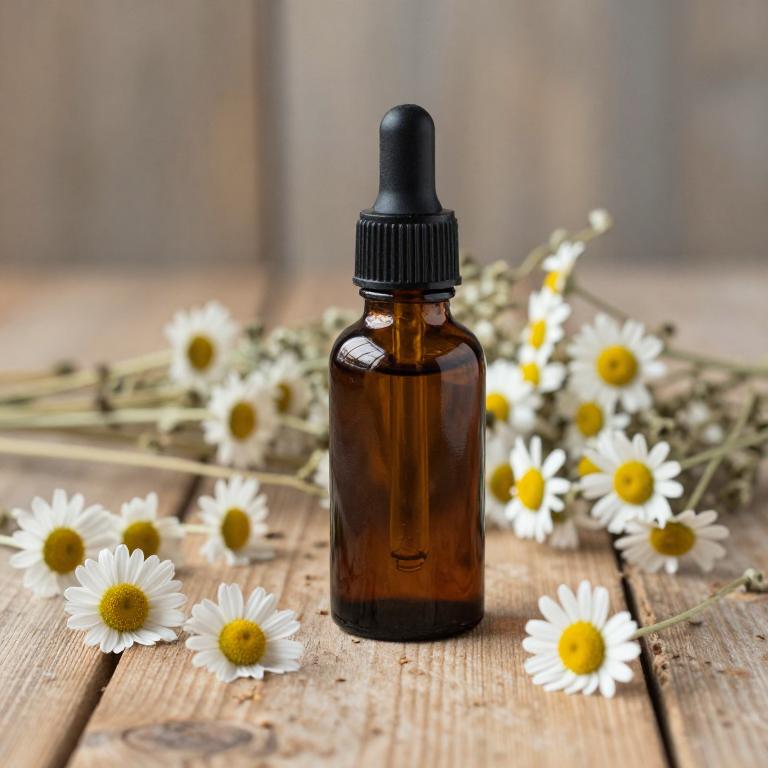
Matricaria chamomilla, commonly known as chamomile, is often used in herbal tinctures to support respiratory health, including the treatment of bronchitis.
These tinctures are typically prepared by steeping chamomile flowers in alcohol, allowing the active compounds such as flavonoids and essential oils to be extracted. The anti-inflammatory and antispasmodic properties of chamomile may help reduce bronchial irritation and ease coughing associated with bronchitis. While not a substitute for conventional medical treatment, chamomile tinctures are sometimes used as a complementary therapy to soothe symptoms.
As with any herbal remedy, it is important to consult with a healthcare provider before use, especially for individuals with allergies or chronic respiratory conditions.
10. Black elderberry (Sambucus nigra)
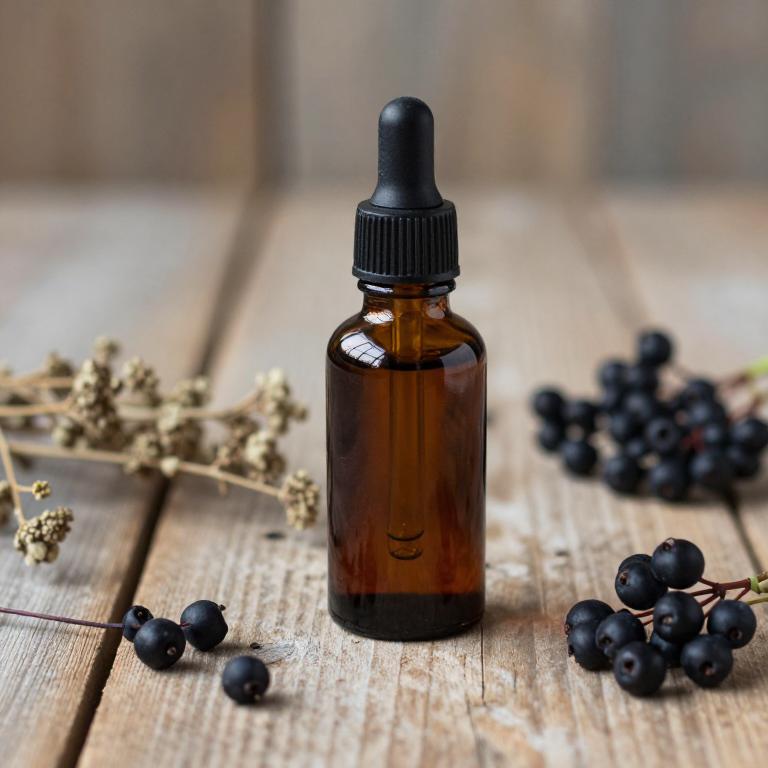
Sambucus nigra, commonly known as European elderberry, is often used in herbal tinctures to support respiratory health, including the treatment of bronchitis.
These tinctures are typically prepared by soaking the dried berries in alcohol, allowing the active compounds such as flavonoids and anthocyanins to be extracted. The anti-inflammatory and antioxidant properties of elderberry may help reduce bronchial irritation and ease coughing symptoms. While not a substitute for medical treatment, sambucus nigra tinctures are sometimes recommended as a complementary therapy for mild to moderate bronchitis.
However, it is important to consult with a healthcare provider before using these tinctures, especially for individuals with chronic respiratory conditions or those taking other medications.